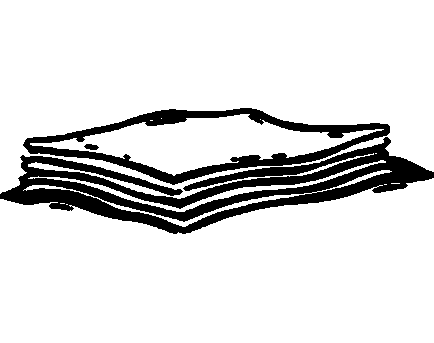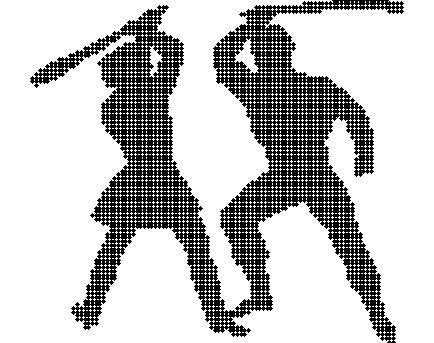 Reviewing Revolution...
Reviewing Revolution...
What is this about? There is too much information! We are drowning! This is the blessing and
the curse of the modern era. The profiling and specialisation are enormous, growing
exponentially, and the old methods of dissemination of information are bursting at the seams.
Once upon a time
I remember a much younger me, in the mid-1980s, when I was starting my research in pattern
recognition. How did we live without Google?!? There was this one major library for Science and
Technology in Sofia (Bulgaria), called the Central Institute for Scientific and Technological
Information. Its closest rival was the library of the only engineering higher education
institution, also in Sofia. There was one large hall with journals, one with conference
proceedings and one with patents. How marvellously simple! There were queues for the copy machine,
students borrowing coins from one another, and that unmatched warmth in my hearth when I had
those important papers neatly laying in my bag.
Faced with the herculean task to browse all these journals, I often felt like an ignorant
grain of sand among the rocks. Excitement mixed with frustration, and an early onset of hypertension.
Nonetheless, there was an end to this. There were walls, and the treasure was contained within, in
its entirety. No such luxury today...
 Publication then and now
Publication then and now
My MSc thesis was typed on a mechanical typewriter. Diana was a few months old. Roumen and I
were writing our theses on paper while rocking Diana's cot at the same time. Roumen's Mum
and Dad were typing the pages up in separate rooms of the small flat we all lived in.
Winword was a godsend a few years later. Sending a paper draft for publication took time
and money. To get a "permission" for a publication, you had to present the paper to the
meeting of the group and acquire the minutes signed by the group's leader. Next, the paper
had to go to the so called "The Secret". "The Secret" was usually a colleague from the same
institute who was some kind of a communist party authority. Their job was to check whether
the paper contained sensitive information which will reveal our top science-and-technology
uber-secrets to the imperialists on the other side of the iron curtain. Boohoo!!! The next
iteration was "The Secret" at a higher institution level, in my case, the one for the
Academy of Science. They were checking for top government secrets apparently. I didn't have
personally any problems with "The Secrets" but one of my colleagues did. She was submitting
a mathematical paper which kept being returned to her "for improvements" without any sensible
explanation. It was formulas from start to finish! She got quite angry after the second return,
and decided to tempt fate. She pulled from her waste basket random pages with consecutive
numbers (previous papers and drafts, all formulas, of course), and packed that as
"the improved" version. This time the paper passed, and the comment was "Now, you see
that you can do it when you put in the effort!"
Timewise, from haing a final draft reafy, there would be: 1-2 days to locate a printer
and paper, a week to organise and hold the group meeting, a week to get the signature
of the meeting chairperson (sometimes longer, but that was specific to our group),
a week to get clearance from the institutional "Secret", and a couple of weeks
to get the return from the higher institutional "Secret". Roughly, a month.
Some journals demanded 8(!) double-spaced copies. Printers were a rarity, a luxury, given
to the privileged, who, of course, were the bosses. We had to wait for our turn.
And, finally, there I go,
with a large envelope, exceeding half a kilo, walking to the post office, feeling quietly
triumphant. About a quarter of my month's salary went for sending manuscripts but who cares?
The woman at the post office desk was a petty thief. I never got a hard proof of that but I knew
the score, and probably she knew that I knew. (I tried to talk to her boss once but this did not lead
anywhere.) I was always sending my mail 1st class, hoping to get the paper as soon as possible
to the editors. There were long unexplained delays. I would pay at the desk for 1st class but
the woman wouldn't put the stamps in front of me. She would just push the letter to the side
and call the next customer. I could have set a trap but I had more important things to do. It
was the same woman at this desk year after year, and my letters were late year after year. But
at least they arrived. If I made more noise, the likely outcome would have been that my letters
would start getting "lost". This was the Bulgarian way then. Maybe there is a better accountability
now? I wouldn't know, I opted out.
The point is, a preparation and submission of a paper after the draft is ready would take two
months. Compare this with a paper submission today - a click of the mouse.
Reviewing
There is an ocean of information now. Infinity… I somehow miss the 4 walls. I no longer
have the feeling that I have a beacon in this ocean. I am clinging to Google and
Web-of-Knowledge for dear life but I know that I might be missing a lot. There are so
many journals nowadays, mushrooming, expanding like a filling foam, like a joyful, out
of control chemical reaction. Citation count increases, good for us! And so does publication
count. This means more and more reviewing. Aha, coming to the point!
When did reviewing turn from an honour to a chore? There are several problems.
First, you usually don't plan time for reviewing. You have your teaching, admin,
research, PhD supervision, MSc supervision, project supervision etc., neatly packed
in your schedule. A review request needs to be fitted in the time scheme.
Second, reviewing is a spurious business. The topic of the paper is rarely a
close match to your research. Maybe it is not just me who is losing my beacon in
the information ocean. Editors and Associate Editors need to figure out who is
working in a given area, and pick from the most suitable candidates. Been there done that.
At some stage, the list of friends and people who owe me a favour finishes, and
reviewers must be sourced from elsewhere. The reviewer lottery may work in your
favour or detriment. Some will not understand the paper, some will not know enough to
point an obvious mistake or omission, some will generously pick a few missed commas,
some will demand that you cite their research, some will always ask for more experiments,
some will always ask for more theory.
Third, reviewing does not count for anything. It doesn't make a prominent clause
in your CV. If you list the journals and conferences which you have served as a
reviewer to, you look a bit desperate. You can't save reviews in your piggy bank or measure
your reviewing achievement against anything. You won't get even a pat on the shoulder from
your boss. Who cares? You may learn something from the paper, granted, but you can learn all
the same by reading some published work. The feared-by-all-British-REF doesn't register
reviewing activity.
And, God, don't you feel guilty when you decline a review? Don't you go on google
to find a replacement? Something that the editor who approached you could do themselves.
Or worse, deflect the review request to a friend who is equally busy?
Something is wrong…
Enter the REVOLUTION
Reviewing will become obsolete. It has been needed in the past because there has
been no way to tap on a larger readers' audience for an opinion poll. Peer reviewing
has been the only credible way to maintain standards of publication. The growing
diversity of topics makes this process impractical, biased or spurious. We have
technology now! We can allow for peer reviewing on a massive scale. Imagine a large
pool of papers, automatically clustered and positioned within a big mosaic. Where do
you look for papers? I doubt very much that you browse the contents of all relevant
journals. Thank God for Internet! Now suppose that you have access to all papers.
The best ones will be spotted and cited over and over. The citations will replace the
reviews.
There will be fewer journals but all will be as prestigious as "Nature" and "Science".
Only the best papers will find their place in the journals. These papers will no longer
be original research, they will be rather "the best of…". Selected by citation from
the pool, say for the past 1 year, these papers can undergo a round of peer review.
This time, however, the reviewing rules will be different.
 First, all reviews will be handsomely
paid.
First, all reviews will be handsomely
paid. Second, reviewers will bid for a paper.
The candidates should submit their records, and the Editor will have the
task to select among them.
Second, reviewers will bid for a paper.
The candidates should submit their records, and the Editor will have the
task to select among them.As an additional benefit, we will kill fewer trees. Plus, a lot of human resource will be freed for better use of their expertise and energy.
YAAAAAY Reviewing Revolution!!! Maybe not in my working lifetime…